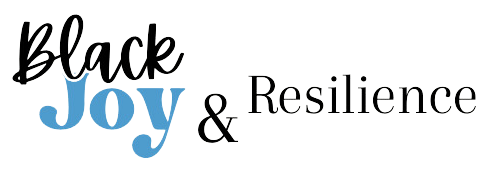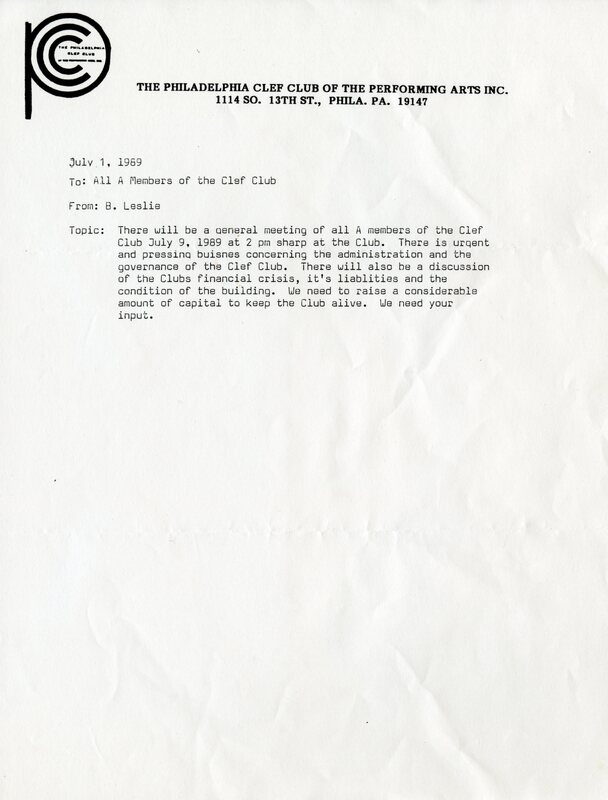Correspondence for Bill Leslie
Item
-
Title
-
Correspondence for Bill Leslie
-
Rights
-
This material is subject to copyright law and is made available for private study, scholarship, and research purposes only. For access to the original or a high resolution reproduction, and for permission to publish, please contact Temple University Libraries, the Charles L. Blockson Afro-American Collection (blockson@temple.edu; 215-204-6632).
-
Date
-
July 1, 1989
-
Description
-
Bill Leslie’s urgent letter to members provided a small glimpse into the Clef Club’s money matters. To dig deeper into its financial history, one would have to search the archives at the Historical Society of Pennsylvania (Philadelphia Clef Club of Jazz and Performing Arts 2013).
-
The Philadelphia Clef Club of Jazz and Performing Arts was founded in 1966 as the social arm of Union Local 274, Philadelphia’s Black musicians’ union (1935–1971). With members such as John Coltrane and Dizzy Gillespie, Local 274 was central to the city’s jazz tradition before its dissolution and merger with Local 77 in the early 1970s due to integration. The Clef Club became a cornerstone for the jazz community, initially as a social club, and from 1978 expanding into performance, instruction, and preservation of Philadelphia’s jazz history (William Leslie, Saxophone Virtuoso, n.d.).
Bill Leslie born in Media, PA, was a tenor saxophonist (1925–2003). Mr Leslie married Sarah Tate when he was 18. That marriage ended in divorce and Sarah died in 1998. Bill then married Thelma Buksa in 1962, and the couple had three children.
After serving in World War II and studying at the Landis School of Music in West Philadelphia, Bill launched his professional career in the late 1940s. During the 1950s he toured with the Louis Jordan Band, performing nationally and in Europe at venues such as Las Vegas clubs, the Apollo Theater in Harlem, and the legendary Smalls’ Paradise. The band also appeared on the popular television program Your Hit Parade. In the 1960s, his recording credits included collaborations with Larry Young, Art Taylor, Tommy Flanagan, and Thornel Schwartz. In the early 1980s he became the first president of the Philadelphia Clef Club, guiding its transformation from a social club for Black musicians into a full-fledged cultural institution. In later years he served as a musician and performer at St. Agnes Catholic Church in Sellersville, Pennsylvania (Wikipedia-Autoren 2016).
-
Language
-
eng
-
Contributor
-
Temple University Libraries, Charles L. Blockson Afro-American Collection
-
Extent
-
1
-
Identifier
-
149
-
Subject
-
Saxophonists
-
Jazz
-
Big band music
-
African American labor leaders
-
Labor unions
-
Financial crises
-
Date Created
-
1989


